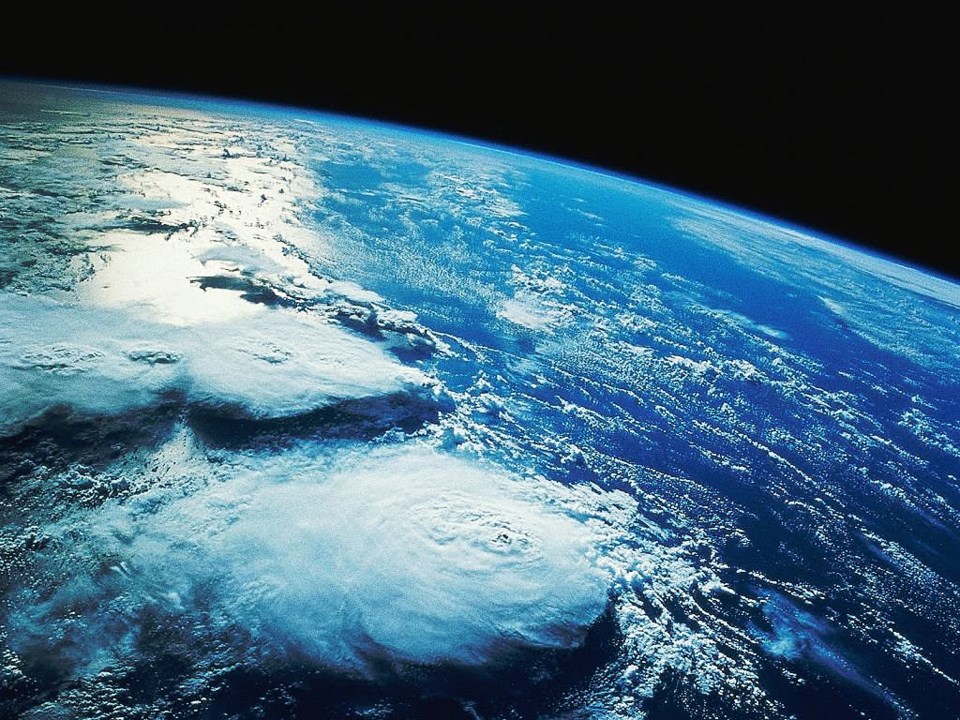An anonymous piece of humour circulating on the web predicts the consequences of a Republican win in the November U.S. federal election: a flood of American liberals across the Canadian border.
The story quotes a fictitious border patrolman: "A lot of these people are not prepared for our rugged conditions... I found one carload without a single bottle of Perrier drinking water. They did have a nice little Napa Valley cabernet, though, and some kale chips."
Entertaining stuff, but what may drive Americans into mass migration toward the 49th parallel is something bigger than a Trump/Clinton steel cage death match.
In 2014, Cliff Mass devoted a page on his weather blog to the changing climate profile of the continental U.S. Mass, who teaches atmospheric sciences at the University of Washington, argued that “a compelling case can be made that the Pacific Northwest will be one of the best places to live as the earth warms. A potential climate refuge.”
The prof examined low coastal areas vulnerable to predicted sea level rises of 1 to 2 feet over the next 85 years, effectively putting huge swaths of the eastern seaboard underwater, from Maine to Texas. “Forget Florida,” he writes.
He then examined the availability of fresh water, which will be highly compromised in the American Midwest and Southwest. (A major drought is already afflicting California.)
The same areas, including further inland to the U.S. east coast, will be significantly affected by hurricanes of greater force and frequency. Heat waves are also expected to rise significantly across the U.S. interior.
Mass found the largest area exempt from the worst effects of predicted climate change was the pacific northwestern corridor that comprises Washington, Oregon, bits of California and all of B.C. In other words, that nomenclatural plaything of Gen-X policymakers, Cascadia.
What about the rest of Canada? Climatologists expect increasing temperatures in the prairies, particularly Saskatchewan. The still active Albertan wildfire that struck Fort McMurray may be a harbinger of the cooking expected in the interior. Things are moving fast; it seems every season some new ecological benchmark is reached.
In other words, if things proceed as predicted, British Columbians can expect waves of climate refugees from within and without Canada.
Perception is everything in a market economy: regardless of the accuracy of climatologists’ projections, if the Pacific Northwest is seen as a global hedge against the Anthropocene, we can also expect increased foreign investment into provincial real estate. Not just from China but other nations projecting climate crises of their own.
(A shaky yuan is not the sole reason for the flight of capital from Red Chinese coffers into global real estate markets. The totalitarian government’s experiment in state capitalism has resulted in environmental disaster. Most waterways in China have been toxified by industrial effluent and chemical fertilizers, and more than 80 per cent of the water from underground wells is unfit for drinking or bathing. Health-threatening blankets of smog hang over Beijing and 29 other cities.)
Barring government intervention, real estate prices in the Lower Mainland may not plateau in the foreseeable future. Any correction could be counterbalanced by our globally-recognized environmental desirability.
But wait! Is Cascadia everything it’s cracked up to be? Yes, if you’re talking about the fractured subduction zone off the pacific coast, which threatens a mega-quake today, tomorrow or 100-plus years from now.
A much-circulated, Pulitzer prize-winning New Yorker article from last year quoted a FEMA official that “everything west of Interstate 5 will be toast.” Some seismologists have rejected this as a hyperbolic remark, but the meme still harshed the "liveability" buzz among Cascadians.
I haven’t even touched on the biggest long-term market correction: a big freeze. Some scientists think global warming will help precipitate the next ice age in the northern hemisphere. Others think global warming will forestall it. In any case, a few hundred feet of glaciation would certainly put a crimp in a future monster-igloo market.
I’m reminded of "Fire and Ice," a 1920 poem by the late U.S. poet laureate Robert Frost:
“Some say the world will end in fire/Some say in ice./From what I’ve tasted of desire/I hold with those who favour fire./But if it had to perish twice,/I think I know enough of hate/To say that for destruction ice/Is also great/And would suffice.”
mwiseguise@yahoo.com
olscribbler.wordpress.com



